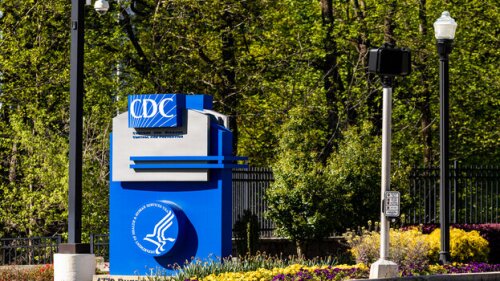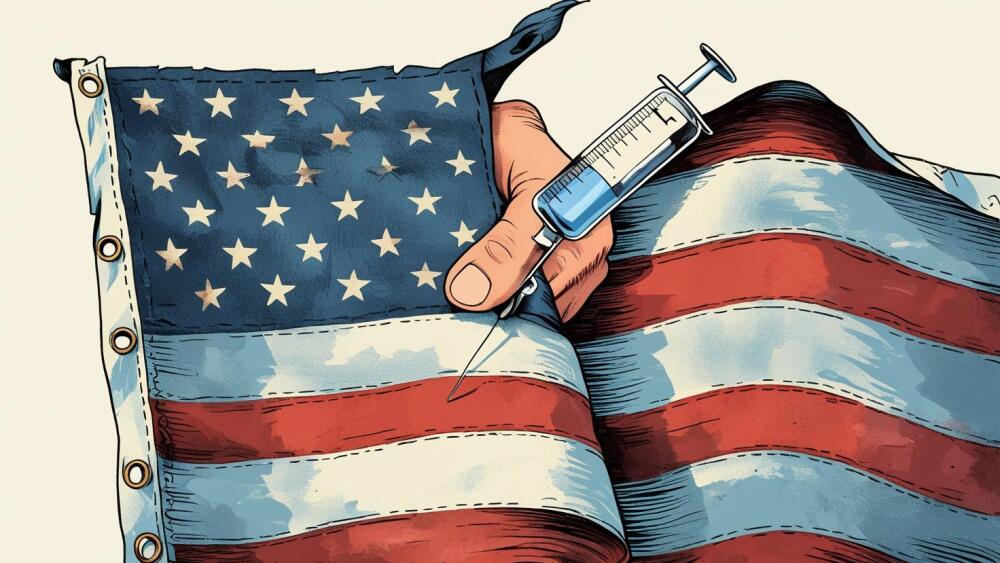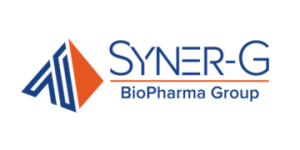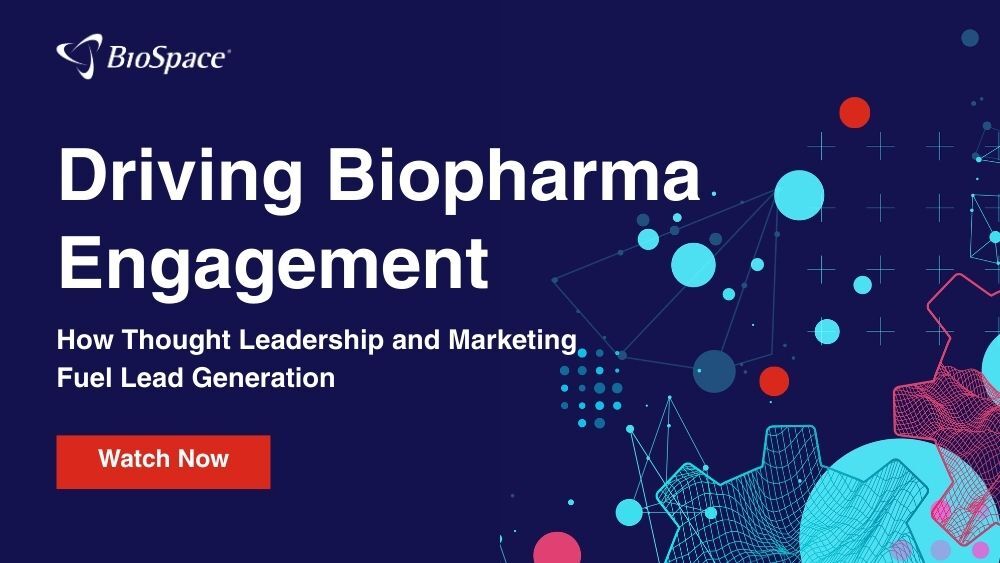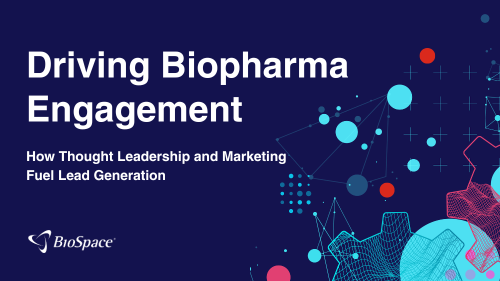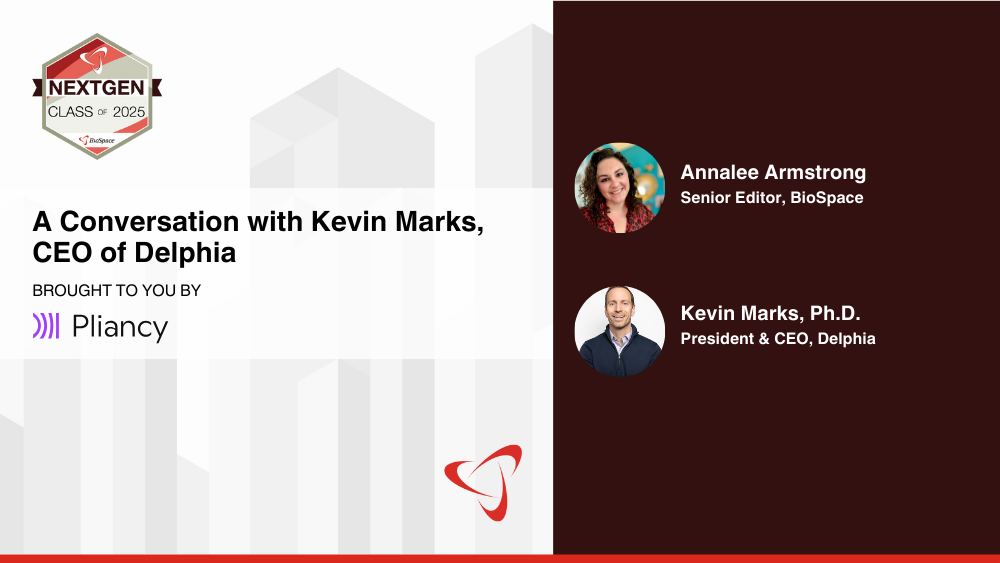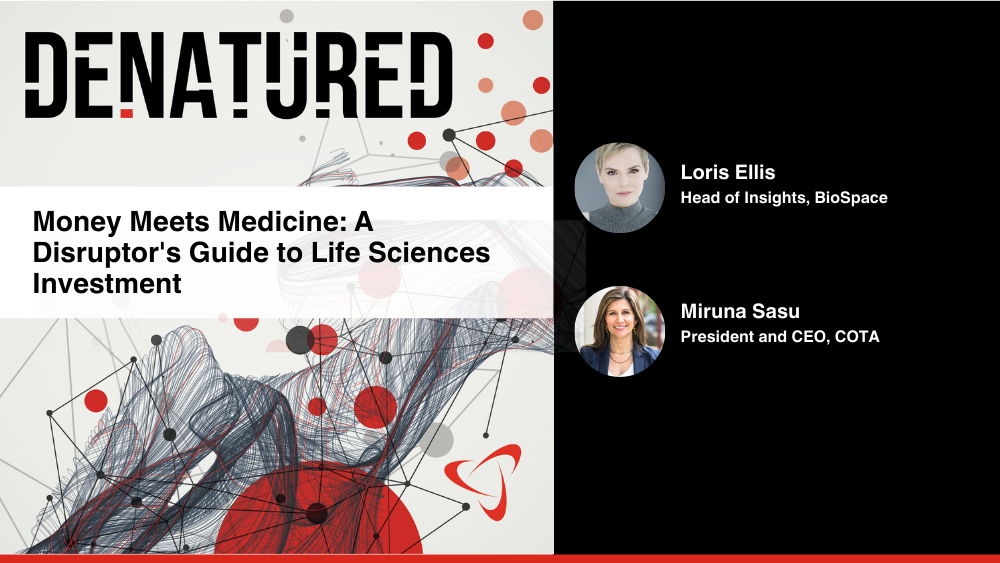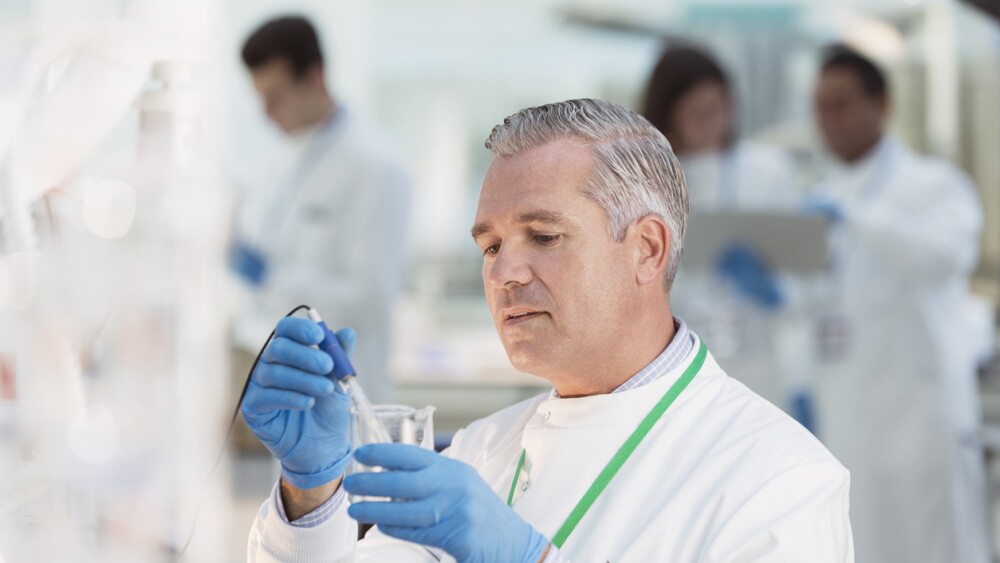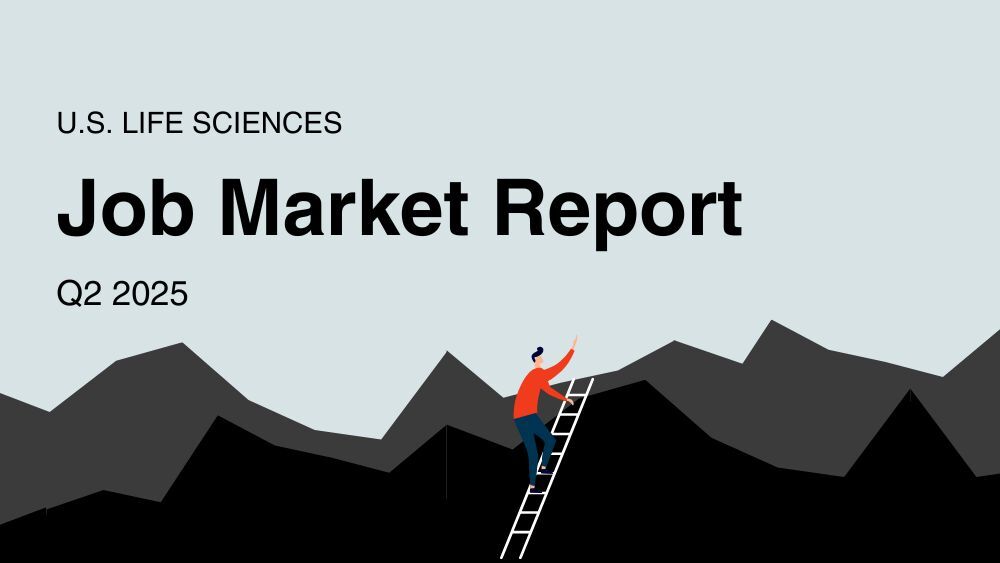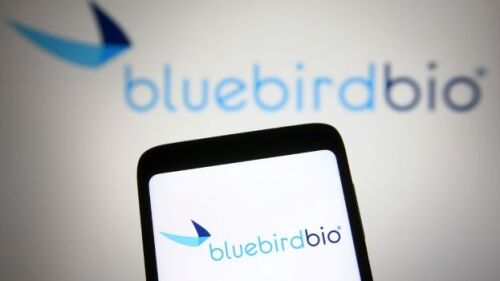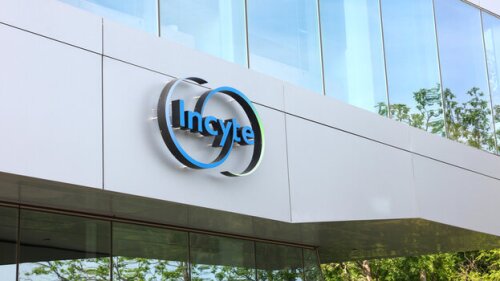After two patients who received the investigational CDC7 blocker died, pushing forward with SGR-2921’s development would be “difficult,” according to Schrödinger, whose stock dropped 17.5% before the opening bell on Thursday.
Hundreds of HHS Staffers Accuse RFK Jr. of ‘Sowing Public Mistrust’ Against CDC After Shooting at HQ
In an open letter, Health and Human Services employees asked the Secretary to stop and disavow the spread of health misinformation, particularly about vaccines, infectious diseases and federal health agencies.
The delays, first revealed in Regeneron’s Q2 report, were chalked up to manufacturing issues at Novo Nordisk-owned plants.
Looking for a biopharma job in Massachusetts? Check out the BioSpace list of nine companies hiring life sciences professionals like you.
In late May, a patient died after receiving Rocket Pharmaceuticals’ investigational gene therapy for Danon disease, spurring the hold. After lowering the dose and changing the regimen of immune modulators patients receive, the company has received FDA clearance for the trial to continue.
The FDA recommends that companies use overall survival as a primary endpoint for clinical trials where feasible. The new guidance follows the surprising return of CBER Head Vinay Prasad, who has previously argued for prioritizing OS.
With its structural changes, CSL expects to generate $500 to $550 million in annualized savings over the next three years.
FEATURED STORIES
Gene therapies have ridden investor mania to huge valuations but commercialization challenges have pushed market caps to the floor. At a roundtable last week, FDA leaders promised faster approvals and broad support to the industry.
As multiple companies vie to expand on Alnylam’s success in commercializing RNAi therapeutics, the pioneering company has set a goal of targeting small interfering RNA to any tissue by 2030.
Vaccine skepticism is at an all-time high in the U.S., and HHS Secretary Robert F. Kennedy Jr. is making some drastic moves in the name of reversing that trend. But misinformation and inconsistencies within the country’s healthcare agencies highlight problems with his approach.
Analysts reacted positively to the news that uniQure is in alignment with the FDA on an accelerated approval pathway and on target for a Q1 2026 submission for its one-time gene therapy for Huntington’s disease—but patients have been here before.
J&J has a multi-year head start, but Gilead believes it can win market share by delivering a drug with better safety and at least as good efficacy.
Jefferies has predicted more small tuck-in deals to come, as biotechs struggle to access capital despite key clinical milestones on the horizon.
FROM BIOSPACE INSIGHTS
Establishing trust through thought leadership is no longer optional in today’s cautious biopharma market. This webinar will show leaders how strategic insights and targeted outreach can turn awareness into high-converting leads. Watch now.
LATEST PODCASTS
Pfizer reacts to Donald Trump’s tariff threats on big pharma, another regulatory meeting is canceled under RFK Jr., AbbVie and Eli Lilly strike mid-sized deals in obesity and molecular glues, priority review vouchers set to take a hit and immuno-oncology matures.
In the second podcast in a special series focused on BioSpace’s NextGen Class of 2025, Senior Editor Annalee Armstrong speaks with Kevin Marks, CEO of Delphia Therapeutics.
In this episode of Denatured, BioSpace’s Head of Insights Lori Ellis and Miruna Sasu, CEO of COTA, discuss life sciences investment and the potential for disruption.
Job Trends
Looking for a job in Texas? Check out these nine companies hiring life sciences professionals like you.
Subscribe to Genepool
Subscribe to BioSpace’s flagship publication including top headlines, special editions and life sciences’ most important breaking news
SPECIAL EDITIONS
BioSpace did a deep dive into biopharma female executives who navigated difficult markets to lead their companies to high-value exits.
BioSpace data show biopharma professionals faced increased competition for fewer employment opportunities during the second quarter of 2025, with increased pressure from further layoffs.
BioSpace did a deep dive into executive pay, examining the highest compensation packages, pay ratios and golden parachutes—what a CEO would get paid to leave.
DEALS
-
Our CEO accidentally started a book club. Now we’re all dreaming of mega pharma mergers.
-
As high prices and supply issues drive consumers to alternative markets for GLP-1s, physicians aren’t too interested in using these therapies to treat conditions like heart disease risk that have existing cheap standards of care.
-
BridGene strikes another partnership with Takeda as the latter company continues its dealmaking streak, following high-ticket agreements with Keros Therapeutics, AC Immune and Degron Therapeutics in the past nine months.
-
The proposed acquisition by global investment firms Carlyle and SK Capital Partners could net shareholders $3 per share plus potential CVR dollars and provide bluebird bio with primary capital to expand the commercial reach of its gene therapies.
-
The agreement, in which Merck will pay the biotech an undisclosed initial sum to license drugs targeting a solid tumor, could net Epitopea up to $300 million down the line.
WEIGHT LOSS
-
Donald Trump takes biopharma on a tariff-themed rollercoaster ride; J&J kicks off the Q1 earnings season; experts express concern about the FDA’s future; Pfizer’s obesity setback could be Viking’s gain; and BioSpace reveals the highest paid pharma CEOs.
-
Merck has not disclosed which of its peptide therapies it plans to develop oral formulations for.
-
Viking Therapeutics enjoyed a nice share rally on the news that rival Pfizer is discontinuing obesity candidate danuglipron. But the biotech has a long way to go to recover after six straight months of decline.
-
Pfizer’s discontinuation of danuglipron brings the company down to a single molecule in its obesity pipeline.
-
A consumer-driven weight loss market could put pharma at greater risk if a recession hits; the continued turmoil at FDA and other HHS agencies magnifies the uncertainty facing the industry; Lilly files a lawsuit against a med spa selling its drugs; and more.
POLICY
-
An open letter signed by more than 50 industry executives blasts a “fundamentally, fatally flawed” report that urges greater restrictions on the abortion pill.
-
As an office of the executive branch, the Department of Health and Human Services “does not have the authority” to implement sweeping changes to the structure of the agency as created by Congress, a judge wrote.
-
Kennedy wants to expand the injury compensation program to include COVID-19 vaccines, while also stretching the “statute of limitations” to more than three years.
-
In an open letter addressing the Trump administration’s proposed budget cuts to HHS, the executives urged Congress to continue “robust federal funding” for scientific research, which they say will help maintain U.S. biotech leadership globally.
-
The revamped and “more anti-vax skewed ACIP committee” at the CDC “has a bone to pick with mRNA vaccines,” according to Truist Securities analysts. Meanwhile, the FDA moves forward on having Pfizer/BioNTech and Moderna update labels for their COVID vaccines.
There are several ways you can maintain a good working relationship with your boss, starting with learning your manager’s work style, preferences and priorities.
To avoid overextending yourself and harming your work-life balance, how should you set and maintain boundaries at work?
Join us in this discussion on how you can optimize your chances of landing a new role despite a highly competitive job market.
BioSpace spoke to HR leaders about how they have been supporting companies navigating a challenging economy while meeting the needs of the workforces they support.
Politics can be a touchy subject, especially during a presidential election year. How should you engage in political discussions at work?
A string of rejections prompt some to look beyond research roles in the biopharma industry as they seek to launch a career.
HOTBEDS
REPORTS
In this Employment Outlook report, BioSpace explores current workforce sentiment, job activity trends and the prospective job and hiring outlook for 2025, particularly as it compares to the previous year.
BioSpace’s third report on diversity, equity, inclusion and belonging in life sciences examines dramatic shifts in attitude around diversity initiatives.
CANCER
-
The deal comes three months after Pfizer inked a PD-1/VEGF partnership with Summit Therapeutics, leading BMO Capital Markets to express confusion regarding the pharma’s overall strategy.
-
A new generation of checkpoint inhibitors is emerging, with some showing more promise than others. From recent TIGIT failures to high-potential targets like VEGF, BioSpace explores what’s on the horizon in immuno-oncology.
-
The FDA also approved the use of Zynyz as a monotherapy for patients with squamous cell carcinoma of the anal canal who are intolerant to platinum chemotherapy or whose disease has progressed.
-
As the FDA prepares for a busy Oncologic Drugs Advisory Committee meeting next week, an agency insider told BioSpace that volunteers with little training are scrambling to secure the required expertise after workforce cuts decimated the adcomm planning office.
-
AbbVie’s Emrelis is the first non-small cell lung cancer therapy approved for patients with high c-Met expression levels who have received prior lines of treatment.
NEUROSCIENCE
-
According to CEO Daniel Vitt, clinical and disability-related outcomes are more relevant than brain volume change for drug development in multiple sclerosis.
-
As Q1 2025 earnings season continues, tariffs remain top of mind for pharma CEOs and investors. Meanwhile, the American Association for Cancer Research’s annual event kicks off this year’s oncology conference season. Plus, will the FDA become politicized under HHS Secretary RFK Jr.?
-
Following the recent discontinuations of assets in Alzheimer’s and migraine, AstraZeneca is stepping away from neuro altogether.
-
Biohaven will use the money to bankroll commercial preparations for the spinocerebellar ataxia drug candidate troriluzole, which is currently under FDA review with a decision expected in the third quarter.
-
Despite a dip in sales and a recent schizophrenia stumble, the company drew an optimistic outlook for sales for the rest of the year, even as the specter of pharmaceutical tariffs looms.
CELL AND GENE THERAPY
-
Werner held roles at Bristol Myers Squibb, AstraZeneca and Novartis before landing at Alltrna, where she works to develop tRNA-based treatments for a range of diseases.
-
Last month, Deerfield Management accused Alcon of obstructing Aurion’s IPO plans so it could acquire the startup “at a discount.”
-
Adaptimmune is rolling out its T cell therapy Tecelra for synovial sarcoma, recording $1.2 million in sales since its approval in August 2024. Nevertheless, it is pausing development of two oncology assets to save money.
-
After Sarepta reported the death of a patient who had recently taken the gene therapy Elevidys, patient advocacy group Parent Project Muscular Dystrophy stepped up—as they always do.
-
The biotech is exploring opportunities for a reverse merger or other business combinations. CFO and now interim CEO Anup Radhakrishnan will take charge of these negotiations.




